
-
 Redknapp's Gold Cup dream sparked by late grandmother
Redknapp's Gold Cup dream sparked by late grandmother
-
Trump tries to reset presidency in State of the Union speech

-
 Harden hails 'special' Cavs after emphatic win over Knicks
Harden hails 'special' Cavs after emphatic win over Knicks
-
Division, theater and one golden moment as Trump addresses Congress

-
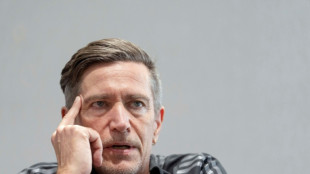 Humble Japan ready to win hearts at Women's Asian Cup
Humble Japan ready to win hearts at Women's Asian Cup
-
New Zealand mayor swims to allay sewage contamination fears

-
 Trump vows 'turnaround for the ages' in State of the Union
Trump vows 'turnaround for the ages' in State of the Union
-
Marquez targets eighth MotoGP title as season opens in Thailand

-
 Months after floods, Indonesian survivors frustrated by slow response
Months after floods, Indonesian survivors frustrated by slow response
-
Tech firms lead Asian markets rally as Seoul, Tokyo hit records

-
 Nepali migrant workers influence polls, but can't vote
Nepali migrant workers influence polls, but can't vote
-
Canadians are choosing when to die, often with a smile
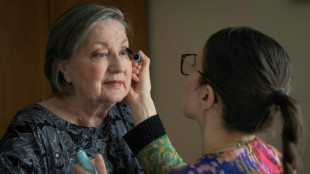
-
 Trump to promise 'turnaround for the ages' in State of the Union
Trump to promise 'turnaround for the ages' in State of the Union
-
Economy not Russia is big fear on Finland's closed frontier
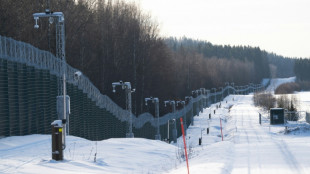
-
 Alexandria bids farewell to historic tram in latest urban upheaval
Alexandria bids farewell to historic tram in latest urban upheaval
-
The veteran 'insider' shaping Iran's nuclear policy

-
 'Jaws' harpoon gun and 'Star Wars' treasures lead LA film and TV auction
'Jaws' harpoon gun and 'Star Wars' treasures lead LA film and TV auction
-
Brazil prosecutor urges politicians' conviction in murder of black councilwoman

-
 Starved of fuel, Cubans scramble to make ends meet
Starved of fuel, Cubans scramble to make ends meet
-
Giant killers Bodo/Glimt continue remarkable rise with Inter triumph

-
 Bodo/Glimt knock Inter out of Champions League as Newcastle, Atletico reach last 16
Bodo/Glimt knock Inter out of Champions League as Newcastle, Atletico reach last 16
-
Australian Open chief Tiley steps down to take top US job
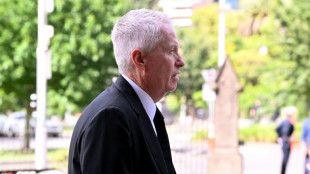
-
 Crime capital no more: El Salvador tourism boosted by Bukele
Crime capital no more: El Salvador tourism boosted by Bukele
-
FIFA boss 'very reassured' about World Cup in Mexico despite violence

-
 15 states sue Trump administration over child vaccine policy
15 states sue Trump administration over child vaccine policy
-
Rescuers search for missing after deluge kills 30 in Brazil

-
 Newcastle complete cruise into Champions League last 16
Newcastle complete cruise into Champions League last 16
-
Leverkusen through to Champions League last 16 after Olympiacos draw

-
 Bodo/Glimt sink Inter to continue Champions League fairy tale
Bodo/Glimt sink Inter to continue Champions League fairy tale
-
Tech shares rebound as markets weigh AI impacts

-
 Puerto Vallarta: the Mexican paradise in flames over the killing of 'El Mencho'
Puerto Vallarta: the Mexican paradise in flames over the killing of 'El Mencho'
-
Sorloth treble helps Atletico past Brugge into Champions League last 16

-
 Louvre president hands in resignation to Macron: Elysee
Louvre president hands in resignation to Macron: Elysee
-
Iran says deal 'within reach' ahead of US talks
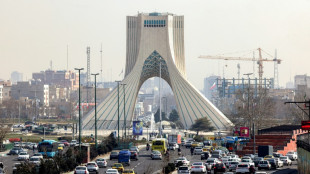
-
 Torrential rains leave 25 dead in Brazil, dozens missing
Torrential rains leave 25 dead in Brazil, dozens missing
-
Northeast US faces power cuts and school closures after snowstorm

-
 US abstains in UN vote voicing support for Ukraine
US abstains in UN vote voicing support for Ukraine
-
Lebanon fears Israeli strikes if Iran situation escalates

-
 Trump seeks to strike back in crucial State of the Union
Trump seeks to strike back in crucial State of the Union
-
World-class Brook played 'the best innings of his life' - Afridi
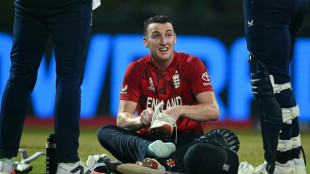
-
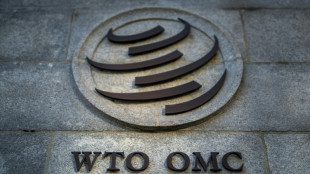 US appeals WTO ruling in dispute by China over clean energy subsidies
US appeals WTO ruling in dispute by China over clean energy subsidies
-
Guadalajara: World Cup host city rocked by narco violence

-
 Briiliant Brook 100 puts England into T20 World Cup semi-finals
Briiliant Brook 100 puts England into T20 World Cup semi-finals
-
Germany's Merz heads to China for talks centred on trade

-
 Briiliant Brook 100 puts England into T20 World Cups semi-finals
Briiliant Brook 100 puts England into T20 World Cups semi-finals
-
Warner Bros. 'reviewing' new takeover bid from Paramount

-
 US told EU it 'stands' by tariff deal: trade chief
US told EU it 'stands' by tariff deal: trade chief
-
Torrential rains leave 23 dead in Brazil, dozens missing

-
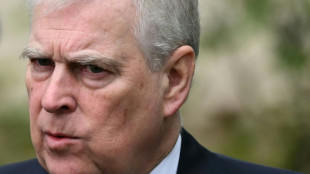 UK govt says will release files on 'rude' ex-prince Andrew
UK govt says will release files on 'rude' ex-prince Andrew
-
Nearly an own gull! CPR performed on bird at Turkey football match
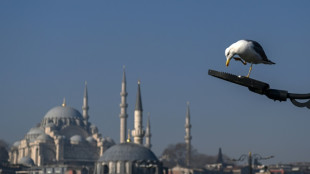

How much progress has been made against Alzheimer's disease?
After decades of unsuccessful research, two new drugs and a pioneering blood test have recently given Alzheimer's patients hope of fighting back against the debilitating disease -- but questions remain about their effectiveness.
Any path toward a cure also remains elusive for Alzheimer's, which accounts for around 70 percent of dementia cases worldwide and is a leading cause of death among the elderly.
Ahead of Alzheimer's Day on Sunday, here is what to know about recent advances to prevent, diagnose and treat the disease.
- How effective are the new drugs? -
Billions of dollars have been spent trying to find a treatment for Alzheimer's disease over the decades, but those efforts have stubbornly fallen short -- at least until recently.
Eli Lilly's donanemab and Biogen and Eisai's lecanemab are the first treatments proven to significantly slow the progression of Alzheimer's.
But the expensive treatments are only modestly effective, and work only for patients at an early stage of the disease. There can also be serious side effects including potentially deadly brain haemorrhages.
That has sparked a debate about whether the benefits of the drugs outweigh the risks, leading to national health regulators taking different stances.
Lecanemab, which is sold under the brand name Leqembi, has been approved in many countries including the United States.
But French health authorities advised the state-run insurance system not to reimburse payment for the drug.
It followed in the footsteps of the UK's state-run health service, whose spending watchdog said this year that both new Alzheimer's drugs did not show enough benefits given their price.
- What about early diagnosis? -
Another debate roiling Alzheimer's research -- and which has also seen a growing divide between Europe and the United States -- revolves around how to diagnose the disease.
The standard method of diagnosing Alzheimer's has required an invasive and expensive lumbar puncture, which can rule out some more at-risk patients.
But a simple blood test that detects "biological markers" of the disease has recently been developed.
US authorities have authorised the test since May, but Europe has not yet approved any Alzheimer's blood test, one of which is the subject of a recently launched national clinical trial in Britain.
The question is whether the blood test will ever be enough by itself to confidently diagnose the disease.
Last year the US nonprofit Alzheimer's Association changed its criteria to say that biomarkers alone were sufficient.
But in Europe, most specialists think a thorough clinical exam will still be needed to confirm a person's cognitive and functional decline.
Many patients "with abnormal biomarkers never develop dementia", Dutch neurologist Edo Richard told AFP.
Richard is also sceptical of the two new Alzheimer's drugs.
The two issues are linked, because proponents of the drugs believe that being able to diagnose the disease before noticeable symptoms appear could amplify the impact of the treatments.
- Can Alzheimer's be prevented? -
One area of consensus is what makes people more at risk of getting Alzheimer's disease and dementia more broadly.
Nearly half of all cases are linked to factors such as obesity, smoking, drinking alcohol, physical inactivity and hearing loss, according to an expert review in The Lancet last year.
There is an increasing amount of research seeking to determine whether programmes encouraging people to exercise and eat better are effective at fighting Alzheimer's.
But so far the randomised controlled trials "targeting these risk factors have shown limited to no effects on cognitive decline or dementia", Richard said.
A recent JAMA study found that the cognitive decline of Alzheimer's patients slowed slightly after undergoing two years of intensive support to be healthier.
For people suffering from Alzheimer's and their families, this kind of progress may not look like much, French epidemiologist Cecilia Samieri acknowledged at a conference this month.
But compared to where things were just a few years ago, "it's already huge", Samieri said.
She said she believed that only trials lasting 10 to 15 years could really show how effective such interventions could be against long-developing diseases such as Alzheimer's.
P.Costa--AMWN



